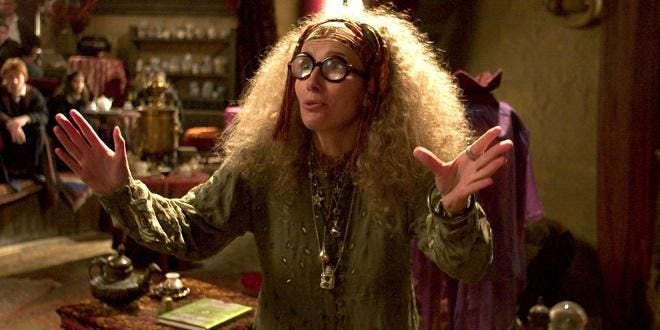Harry Potter
I’ve already discussed the casting challenges facing HBO’s upcoming Harry Potter series. It’s going to be really hard for fans to accept new actors in these roles because the original cast for the films is so iconic now. We associate each character very closely with the actor who played them in the movies.
But I have two other potential hurdles this series will face. One is tied closely to casting; the other is unrelated. We’ll start with the casting issue.
I noted recently that the series is being cast much younger than the movies when it comes to adult characters. This makes sense. The adult characters in the books were often much younger than they were in the films. Snape should have been in his early 30s, not his mid-50s like Alan Rickman.
My concern is that in doing so, the series will focus too much on the characters ages rather than on making them as outlandish and preposterous as they were in the films. A reader made a great observation that in Harry Potter adults are a lot like Roald Dahl’s grown-up characters: Over-the-top and never, ever “normal” in any way. Emma Thompson’s Professor Trelawney is a great example of this. Thompson was decked out in the most ridiculous costume with huge thick-rimmed, glassy spectacles that made her eyes bulge and hair that looked as if it might, at any moment, take flight. Vernon Dursley was literally larger than life. These are characters you might find wandering the halls of Willy Wonka’s chocolate factory.
Rickman’s Snape was almost cartoonish with his hawk nose and long, straight black hair and pallid skin. Timothy Spall’s Peter Pettigrew was almost rodent-like in a way I frankly can’t imagine any other actor pulling off. The movies did a fantastic job at making just about every adult character appear abnormal and strange compared to the relatively normal kids. This is all done very purposefully. And it really does work the same way adults are portrayed in many of Dahl’s stories. The wicked aunts in James And The Giant Peach, for example: Aunt Spiker is a beanpole, Aunt Sponge as rotund as a peach. Or the witches from The Witches with their terrifying claws and bald pates.
The Witches
In other words, casting age-appropriate characters is less important than creating an aesthetic that reflects the stark contrast between the students and the adults in their lives. Every grown-up should be imaginatively outlandish, like some foreign species the kids encounter. Hopefully this isn’t lost in the shuffle when it comes to costumes, makeup and overall production design.
The other hurdle I foresee is a bit harder to unpack simply because we have nothing to go on yet: The music. Some movies end up having really iconic original scores and Harry Potter is one of those thanks to yet another brilliant score by composer John Williams who has written many of the most memorable themes for countless films, from Star Wars to Indiana Jones to Jurassic Park. Like those movies, you can easily conjure up the music of Harry Potter and hum it in your head. Try it right now. And now imagine watching a new Harry Potter without it.
Will the series simply reuse and repurpose the John Williams score or will it come up with its own? If HBO takes the latter path, how will this impact our enjoyment of the new show? It’s one thing to watch all-new actors take on these parts, and another thing altogether to have a wholly new score. Will they try to make it sound similar, kind of how Netflix borrowed the vibe of The Witcher video game score for its streaming series? We shall see.
I suppose there are many other, similar issues facing the series. What will Hogwarts be like? Diagon Alley? The Hogwarts Express? The robes students and faculty wear? Voldemort – er, sorry, He Who Shall Not Be Named?
Fundamentally, I think this comes down to one simple fact: This is a franchise that’s only been filmed once. We’re used to new versions of Batman or Superman or other comic book adaptations coming out every few years. Even The Lord Of The Rings had been done before Peter Jackson’s trilogy, though only as animation. Harry Potter was adapted for screen one time and it was pretty close to perfect. Unlike so many other franchises that have been made and remade over the years, this one has been left “pure” so to speak . . . other than the flimsy attempts at expanding the Potterverse with the rather lackluster Fantastic Beasts films. (Where are these fantastic beasts and will we ever find them?) Perhaps the lack of magic in those films has also made me a bit more jaded when it comes to any future Harry Potter projects.
Still, I’m excited to see what the television format can do for an adaptation of J.K. Rowling’s books. I’d still love to see the same done for Lord Of The Rings, with one season given to Fellowship Of The Ring, one for The Two Towers and one for Return Of The King. TV can give a lot more space for stories to breathe, for adaptations to be accurate – or for those in charge of the adaptation to completely ruin things by “making it their own” instead of faithfully adapting the source material. We shall see.
Read the full article here
